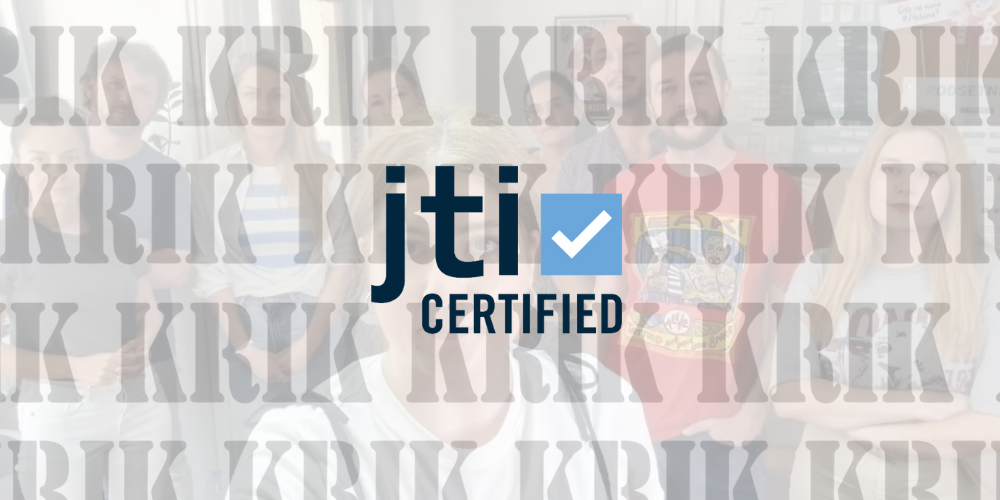We sat down with Bojan Elek, Project Manager for the Crime and Corruption Reporting Network (KRIK). On May 21, 2025, the Serbian investigative media outlet obtained the Journalism Trust Initiative (JTI) certification, the second in the country after Istinomer. We asked Elek three questions about the significance of the JTI certification for KRIK.
What was the reason for KRIK to pursue the JTI certification?
The media environment in Serbia remains highly polarized. There has been a surge in SLAPP lawsuits, growing political pressure, and a decline in press freedom rankings. Independent and investigative outlets operate in a hostile environment marked by economic problems and insufficient institutional safeguards. With the country-wide anti-regime protests now in their eighth month, the authoritarian government has stepped up its crackdown on civil society and independent media. Journalists are frequently subjected to threats and smear campaigns. The situation has become so dire that the Media Freedom Rapid Response consortium recently published a report stating that media freedoms in Serbia are “in a state of emergency.”
However, despite these pressures, a resilient core of media actors remains committed to ethical standards, transparency, and public interest reporting. KRIK is among them. Against this backdrop, the JTI framework provided a timely opportunity to reaffirm and strengthen our commitment to these values in a region where media freedoms are under attack, trust in the media is low, and misinformation is widespread.
Has the assessment of KRIK with the requirements of JTI had any tangible effect?
Internally, it prompted an editorial reflection process focused on optimization across departments, leading us to revisit and formalize certain internal standards. Due to recent legal changes in Serbia, media outlets are required to adopt internal acts on editorial ethics. Rather than treating this obligation as a mere formality, we used it as an opportunity to incorporate JTI requirements into our internal documents and procedures. This ensures that our ethical commitments align with the best international standards while remaining transparent to our audiences.
One of the most visible outcomes externally was the launch of our new website. It was designed to modernize our public presence and enhance transparency. We introduced clearer disclosures about our editorial structure and improved transparency by providing clearer communication about our work processes and making additional information available to our readers. This update also made our editorial guidelines and contact protocols more accessible, thereby improving trust and engagement with our audiences.
What benefits do you hope to achieve now KRIK is JTI-certified?
We believe that the JTI certification should not be seen merely as a badge of honor but as a strategic asset: a signal to donors, partners and the broader public that we meet international standards of trustworthy journalism. For example, it should be a driver for a media outlet’s sustainability, a tool to be visibly distinguished in a saturated media landscape, a way to access targeted support or to be included in dedicated funding opportunities.



